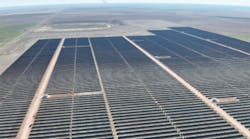The Department of Energy (DOE) plans to increase its support for the R&D development efforts of cutting-edge green technologies through a series of “Clean Energy Grand Challenges,” each focused on pursuing technical innovations and reductions in cost that will enable clean energy technologies to compete directly, without subsidies, with the energy technologies currently in wide use today.
Last month at a Daimler Truck factory in Mt. Holly, N.C., President Obama launched EV-Everywhere, the second of these Grand Challenges, to bring together scientists, engineers and businesses to work collaboratively to make electric vehicles more affordable and convenient to own and drive than today's gasoline-powered vehicles within the next 10 years.
The EV-Everywhere Challenge follows the model of the $1/watt SunShot Challenge, which seeks to make solar power directly cost-competitive with electricity from fossil fuels by the end of the decade. Over the next few months, the Department of Energy will announce other Grand Challenges, each focused on pursuing technical innovations and reductions in cost that will enable clean energy technologies to compete directly, without subsidies, with existing energy technologies.
DOE Secretary Steven Chu said in a press release announcing the EV-Everywhere Challenge, “The Energy Department's Clean Energy Grand Challenges will engage America's scientists, engineers and young people to solve some of the nation's biggest energy challenges and make clean energy technologies affordable and accessible to the vast majority of American families and businesses. The EV-Everywhere Challenge is focused on advancing electric vehicle technologies and continuing to reduce costs so that a decade from now electric vehicles will be more affordable and convenient to own than today's gasoline-powered vehicles.”
The aggressive goal of this initiative is to enable U.S. companies by 2022 to be the first in the world to produce a five-passenger affordable American electric vehicle with a payback time of less than five years and sufficient range and fast-charging ability to enable average Americans everywhere to meet their daily transportation needs more conveniently and at lower cost.
News surfaced last month that one battery manufacturer previously awarded a $4 million DOE grant for battery research made a significant breakthrough in its R&D efforts for electric-vehicle batteries. Envia Systems, Hayward, Calif., announced last month at the Advanced Research Projects Agency-Energy (ARPA-E) Energy Innovation Summit held in Washington, D.C., that it had doubled the energy density for lithium-ion batteries and set the world record for energy density in rechargeable lithium-ion batteries. According to a press release announcing the development, the breakthrough could result in a 50% reduction in the price of the battery on a 300-mile range electric vehicle, and came several years ahead of initial projections.








